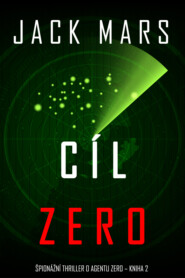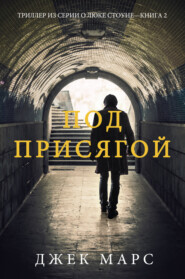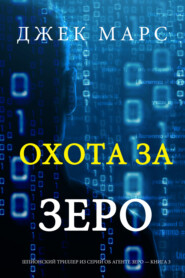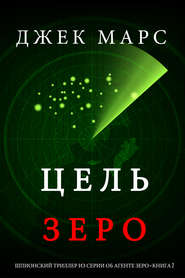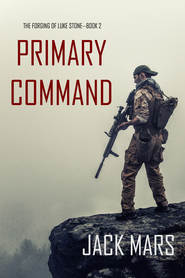По всем вопросам обращайтесь на: info@litportal.ru
(©) 2003-2024.
✖
Target Zero
Автор
Год написания книги
2019
Настройки чтения
Размер шрифта
Высота строк
Поля
“My God,” Cicero said in a near-whisper. “Do you know what this is, Renault?”
“A body?” he ventured. At least he hoped that the arm was attached to more.
Cicero spoke quickly, gesticulating with his hands. “Back in the 1880s, a small settlement existed not far from here, right on the banks of the Kolyma. The original settlers were nomads, but as their numbers grew, they intended to build a village here. Then the unthinkable happened. A smallpox epidemic swept through them, killing forty percent of their tribe in a matter of days. They believed the river was cursed, and the survivors vacated quickly.
“But before they did, they buried their dead—right here, in a mass grave at the shore of the Kolyma River.” He pointed into the hole, at the arm. “The floodwaters are eroding the banks. The melting permafrost would soon uncover these bodies, and all it would take after that is some local fauna to pick at them and become a carrier before we could be facing an all-new epidemic.”
Renault forgot to breathe for a moment as he watched one of the yellow-clad researchers, down in the hole, scrape samples of the decomposing arm. The discovery was quite exciting; up until five months ago, the last known natural outbreak of smallpox had occurred in Somalia, in 1977. The World Health Organization had declared the disease eradicated in 1980. Yet they now stood at the edge of a literal grave known to be infected with a dangerous virus that could decimate the population of a major city in days—and their job was to dig it up, verify it, and send samples back to the WHO.
“Geneva will have to confirm it,” Cicero said quietly, “but if my speculation is correct, we have just unearthed an eight-thousand-year-old strain of smallpox.”
“Eight thousand?” Renault inquired. “I thought you said the settlement was in the late nineteenth century.”
“Ah, I did!” said Cicero. “But the question then becomes, how did they—an isolated nomadic tribe—contract it? In a similar fashion, I would imagine. Digging the ground and stumbling upon something long-since frozen. This strain found in the thawed caribou carcass five months ago dated all the way back to the start of the Holocene epoch.” The older virologist could not seem to take his eyes from the arm jutting from the frozen dirt below. “Renault, fetch the box, please.”
Renault retrieved the steel sample box and set it in the frozen earth near the edge of the hole. He unlocked the four clasps that sealed it and lifted the lid. Inside, where he had stowed it earlier, was a MAB PA-15. It was an old pistol, but not a heavy one, weighing about two pounds fully loaded with a fifteen-round magazine and one in the chamber.
The gun had belonged to his uncle, a veteran of the French Army who had fought in Maghreb and Somalia. The young Frenchman, however, disliked guns; they were too direct, too discriminate, and far too artificial for his tastes. Not like a virus—nature’s perfect machine, capable of wiping out entire species, both systematic and uncritical at the same time. Emotionless, unyielding, and precipitate; all of which he needed to be in the moment.
He reached into the steel box and wrapped his hand around the gun, but wavered slightly. He did not want to use the gun. He had, in fact, grown rather fond of Cicero’s infectious optimism and the twinkle in the older man’s eye.
But all things must come to an end, he thought. The next experience awaits.
Renault stood with the pistol in his palm. He toggled the safety and dispassionately shot the two researchers on either side of the hole, point-blank in the chest.
Dr. Bradlee let out a startled shriek at the sudden, jarring report of the gun. She scrambled backward, covering two paces before Renault fired twice into her. The English doctor, Scott, made a feeble attempt to climb out from the hole before the Frenchman made it his grave with a single shot into the top of his head.
The shots were thunderous, deafening, but there was no one around for a hundred miles to hear them. Almost no one.
Cicero was rooted to the spot, paralyzed with shock and fear. It had taken Renault only seven seconds to end four lives—only seven seconds for the research expedition to become a mass murder.
The older doctor’s lips trembled behind his respirator as he attempted to speak. At long last he stammered a single word: “Wh-why?”
Renault’s icy gaze was stoic, as detached as any virologist would have to be. “Doctor,” he said softly, “you are hyperventilating. Remove your respirator before you pass out.”
Cicero’s breath came ragged and quick, outpacing the respirator’s ability. His gaze flitted from the gun in Renault’s hand, held casually at his side, to the hole in which Dr. Scott now lay dead. “I… I cannot,” Cicero stuttered. To remove his respirator would be to potentially subject himself to the disease. “Renault, please…”
“My name is not Renault,” said the young man. “It is Cheval—Adrian Cheval. There was a Renault, a university student who was awarded this internship. He is dead now. It is his transcript, and his paper, that you read.”
Cicero’s bloodshot eyes widened further. The edges of his vision grew fuzzy and dark with the threat of losing consciousness. “I don’t… I don’t understand… why?”
“Dr. Cicero, please. Remove the respirator. If you are going to die, would you not prefer it to be with some dignity? Facing the sunshine, rather than behind a mask? If you lose consciousness, I assure you, you will never wake up.”
Fingers quivering, Cicero slowly reached up and tugged down the tight yellow hood from over his white-streaked hair. Then he gripped the respirator and mask and pulled it off. The sweat that had beaded on his forehead chilled instantly and froze.
“I want you to know,” said the Frenchman, Cheval, “that I truly do respect you and your work, Cicero. I take no pleasure in this.”
“Renault—or Cheval, whoever you might be—listen to reason.” With the respirator off, Cicero regained enough of his faculties to make a plea. There could be only one motivation for the young man before him to commit such an atrocity. “Whatever it is you are planning to do with this, please, reconsider. It is extremely dangerous—”
Cheval sighed. “I am aware, Doctor. You see, I was indeed a student at Stockholm University, and I truly was pursuing my doctorate. Last year, however, I made an error. I forged faculty signatures on a request form to obtain samples of a rare enterovirus. They found out. I was expelled.”
“Then… then let me help you,” Cicero pleaded. “I-I can sign such a request. I can assist you with your research. Anything but this—”
“Research,” Cheval mused quietly. “No, Doctor. It is not research I am after. My people are waiting, and they are not patient men.”
Cicero’s eyes welled. “Nothing good will come of it. You know that.”
“You’re wrong,” said the young man. “Many will die, yes. But they will die nobly, paving the way for a much better future.” Cheval looked away. He did not want to shoot the kind old doctor. “You were right about one thing, though. My Claudette, she is real. And absence does indeed make the heart grow fonder. I must go now, Cicero, and so must you. But I respect you, and I am willing to grant a final request. Is there anything you would like to say to your Phoebe? You have my word I will deliver the message.”
Cicero shook his head slowly. “There is nothing so important to tell her that I would send a monster like you into her path.”
“Very well. Goodbye, Doctor.” Cheval raised the PA-15 and fired a single round into Cicero’s forehead. The wound frothed as the older doctor staggered and collapsed onto the tundra.
In the stunning silence that followed, Cheval took a moment and, kneeling, murmured a brief prayer. Then he set about his work.
He wiped the gun clean of prints and powder and hurled it into the flowing, icy Kolyma River. Next he rolled the four bodies into the hole to join Dr. Scott. With a shovel and pick, he spent ninety minutes covering them and the exposed, decomposing arm with partially frozen dirt. He disassembled the excavation site, pulling out the stakes and tearing down the procedural tape. He took his time, working meticulously—no one would even attempt to contact the research team for another eight to twelve hours, and it would be at least a full twenty-four before the WHO sent anyone to the site. An investigation would certainly yield the buried bodies, but Cheval was not keen to make it easy on them.
Lastly, he took the glass vials containing the samples from the decomposing arm and carefully slid them, one by one, into the secure foam tubes of the stainless steel box, all the while keenly aware that any single one of them had the power to be staggeringly deadly. Then he sealed the four clasps and carried the samples back to the encampment.
In the makeshift clean room, Cheval stepped into the portable decontamination shower. Six nozzles sprayed him down from every angle with steaming hot water and a built-in emulsifier. Once finished, he carefully and methodically peeled off the yellow hazmat suit, leaving it on the floor of the tent. It was possible that his hairs or spittle, identifying factors, could be in the suit—but he had one last step to perform.
In the back of Cicero’s all-terrain jeep were two rectangular red gasoline canisters. It would take only one for him to reach civilization again. The other he dumped liberally over the clean room, the four neoprene tents, and the canvas canopy.
Then he lit the fire. The blaze went up quickly and instantly, sending black, oily smoke roiling skyward. Cheval climbed into the jeep with the steel sample box and drove away. He did not speed, and he did not look in the rearview mirror to watch the site burn. He took his time.
Imam Khalil would be waiting. But the young Frenchman still had much to do before the virus was ready.
CHAPTER ONE
Reid Lawson peered through the blinds of his home office for the tenth time in less than two minutes. He was growing anxious; the bus should have arrived by now.
His office was on the second floor, the smallest of the three bedrooms of their new home on Spruce Street in Alexandria, Virginia. It was a welcome contrast to the cramped, boxy closet of a study he had in the Bronx. Half of his things were unpacked; the rest were still in boxes that lay scattered across the room. His bookshelves were constructed, but his books lay stacked in alphabetical order on the floor. The only things he had taken the time to completely build and organize were his desk and computer.
Reid had told himself that today was going to be the day that he finally got it together, nearly a full month after moving in, and finished unpacking the office.
He had gotten as far as opening a box. It was a start.
The bus is never late, he thought. It’s always here between three twenty-three and three twenty-five. It’s three thirty-one.
I’m calling them.
He snatched his cell phone from the desk and dialed Maya’s number. He paced as it rang, trying not to think of all the awful things that could have happened to his girls between the school and home.
The call went to voicemail.
Reid hurried down the stairs to the foyer and pulled on a light jacket; March in Virginia was considerably more favorable than New York, but still a bit chilly. Car keys in hand, he punched in the four-digit security code on the wall panel to arm the alarm system to “away” mode. He knew the precise route the bus took; he could backtrack it all the way to the high school if he needed to, and…
As soon as he pulled the front door open, the bright yellow bus hissed to a stop at the end of his driveway.
“A body?” he ventured. At least he hoped that the arm was attached to more.
Cicero spoke quickly, gesticulating with his hands. “Back in the 1880s, a small settlement existed not far from here, right on the banks of the Kolyma. The original settlers were nomads, but as their numbers grew, they intended to build a village here. Then the unthinkable happened. A smallpox epidemic swept through them, killing forty percent of their tribe in a matter of days. They believed the river was cursed, and the survivors vacated quickly.
“But before they did, they buried their dead—right here, in a mass grave at the shore of the Kolyma River.” He pointed into the hole, at the arm. “The floodwaters are eroding the banks. The melting permafrost would soon uncover these bodies, and all it would take after that is some local fauna to pick at them and become a carrier before we could be facing an all-new epidemic.”
Renault forgot to breathe for a moment as he watched one of the yellow-clad researchers, down in the hole, scrape samples of the decomposing arm. The discovery was quite exciting; up until five months ago, the last known natural outbreak of smallpox had occurred in Somalia, in 1977. The World Health Organization had declared the disease eradicated in 1980. Yet they now stood at the edge of a literal grave known to be infected with a dangerous virus that could decimate the population of a major city in days—and their job was to dig it up, verify it, and send samples back to the WHO.
“Geneva will have to confirm it,” Cicero said quietly, “but if my speculation is correct, we have just unearthed an eight-thousand-year-old strain of smallpox.”
“Eight thousand?” Renault inquired. “I thought you said the settlement was in the late nineteenth century.”
“Ah, I did!” said Cicero. “But the question then becomes, how did they—an isolated nomadic tribe—contract it? In a similar fashion, I would imagine. Digging the ground and stumbling upon something long-since frozen. This strain found in the thawed caribou carcass five months ago dated all the way back to the start of the Holocene epoch.” The older virologist could not seem to take his eyes from the arm jutting from the frozen dirt below. “Renault, fetch the box, please.”
Renault retrieved the steel sample box and set it in the frozen earth near the edge of the hole. He unlocked the four clasps that sealed it and lifted the lid. Inside, where he had stowed it earlier, was a MAB PA-15. It was an old pistol, but not a heavy one, weighing about two pounds fully loaded with a fifteen-round magazine and one in the chamber.
The gun had belonged to his uncle, a veteran of the French Army who had fought in Maghreb and Somalia. The young Frenchman, however, disliked guns; they were too direct, too discriminate, and far too artificial for his tastes. Not like a virus—nature’s perfect machine, capable of wiping out entire species, both systematic and uncritical at the same time. Emotionless, unyielding, and precipitate; all of which he needed to be in the moment.
He reached into the steel box and wrapped his hand around the gun, but wavered slightly. He did not want to use the gun. He had, in fact, grown rather fond of Cicero’s infectious optimism and the twinkle in the older man’s eye.
But all things must come to an end, he thought. The next experience awaits.
Renault stood with the pistol in his palm. He toggled the safety and dispassionately shot the two researchers on either side of the hole, point-blank in the chest.
Dr. Bradlee let out a startled shriek at the sudden, jarring report of the gun. She scrambled backward, covering two paces before Renault fired twice into her. The English doctor, Scott, made a feeble attempt to climb out from the hole before the Frenchman made it his grave with a single shot into the top of his head.
The shots were thunderous, deafening, but there was no one around for a hundred miles to hear them. Almost no one.
Cicero was rooted to the spot, paralyzed with shock and fear. It had taken Renault only seven seconds to end four lives—only seven seconds for the research expedition to become a mass murder.
The older doctor’s lips trembled behind his respirator as he attempted to speak. At long last he stammered a single word: “Wh-why?”
Renault’s icy gaze was stoic, as detached as any virologist would have to be. “Doctor,” he said softly, “you are hyperventilating. Remove your respirator before you pass out.”
Cicero’s breath came ragged and quick, outpacing the respirator’s ability. His gaze flitted from the gun in Renault’s hand, held casually at his side, to the hole in which Dr. Scott now lay dead. “I… I cannot,” Cicero stuttered. To remove his respirator would be to potentially subject himself to the disease. “Renault, please…”
“My name is not Renault,” said the young man. “It is Cheval—Adrian Cheval. There was a Renault, a university student who was awarded this internship. He is dead now. It is his transcript, and his paper, that you read.”
Cicero’s bloodshot eyes widened further. The edges of his vision grew fuzzy and dark with the threat of losing consciousness. “I don’t… I don’t understand… why?”
“Dr. Cicero, please. Remove the respirator. If you are going to die, would you not prefer it to be with some dignity? Facing the sunshine, rather than behind a mask? If you lose consciousness, I assure you, you will never wake up.”
Fingers quivering, Cicero slowly reached up and tugged down the tight yellow hood from over his white-streaked hair. Then he gripped the respirator and mask and pulled it off. The sweat that had beaded on his forehead chilled instantly and froze.
“I want you to know,” said the Frenchman, Cheval, “that I truly do respect you and your work, Cicero. I take no pleasure in this.”
“Renault—or Cheval, whoever you might be—listen to reason.” With the respirator off, Cicero regained enough of his faculties to make a plea. There could be only one motivation for the young man before him to commit such an atrocity. “Whatever it is you are planning to do with this, please, reconsider. It is extremely dangerous—”
Cheval sighed. “I am aware, Doctor. You see, I was indeed a student at Stockholm University, and I truly was pursuing my doctorate. Last year, however, I made an error. I forged faculty signatures on a request form to obtain samples of a rare enterovirus. They found out. I was expelled.”
“Then… then let me help you,” Cicero pleaded. “I-I can sign such a request. I can assist you with your research. Anything but this—”
“Research,” Cheval mused quietly. “No, Doctor. It is not research I am after. My people are waiting, and they are not patient men.”
Cicero’s eyes welled. “Nothing good will come of it. You know that.”
“You’re wrong,” said the young man. “Many will die, yes. But they will die nobly, paving the way for a much better future.” Cheval looked away. He did not want to shoot the kind old doctor. “You were right about one thing, though. My Claudette, she is real. And absence does indeed make the heart grow fonder. I must go now, Cicero, and so must you. But I respect you, and I am willing to grant a final request. Is there anything you would like to say to your Phoebe? You have my word I will deliver the message.”
Cicero shook his head slowly. “There is nothing so important to tell her that I would send a monster like you into her path.”
“Very well. Goodbye, Doctor.” Cheval raised the PA-15 and fired a single round into Cicero’s forehead. The wound frothed as the older doctor staggered and collapsed onto the tundra.
In the stunning silence that followed, Cheval took a moment and, kneeling, murmured a brief prayer. Then he set about his work.
He wiped the gun clean of prints and powder and hurled it into the flowing, icy Kolyma River. Next he rolled the four bodies into the hole to join Dr. Scott. With a shovel and pick, he spent ninety minutes covering them and the exposed, decomposing arm with partially frozen dirt. He disassembled the excavation site, pulling out the stakes and tearing down the procedural tape. He took his time, working meticulously—no one would even attempt to contact the research team for another eight to twelve hours, and it would be at least a full twenty-four before the WHO sent anyone to the site. An investigation would certainly yield the buried bodies, but Cheval was not keen to make it easy on them.
Lastly, he took the glass vials containing the samples from the decomposing arm and carefully slid them, one by one, into the secure foam tubes of the stainless steel box, all the while keenly aware that any single one of them had the power to be staggeringly deadly. Then he sealed the four clasps and carried the samples back to the encampment.
In the makeshift clean room, Cheval stepped into the portable decontamination shower. Six nozzles sprayed him down from every angle with steaming hot water and a built-in emulsifier. Once finished, he carefully and methodically peeled off the yellow hazmat suit, leaving it on the floor of the tent. It was possible that his hairs or spittle, identifying factors, could be in the suit—but he had one last step to perform.
In the back of Cicero’s all-terrain jeep were two rectangular red gasoline canisters. It would take only one for him to reach civilization again. The other he dumped liberally over the clean room, the four neoprene tents, and the canvas canopy.
Then he lit the fire. The blaze went up quickly and instantly, sending black, oily smoke roiling skyward. Cheval climbed into the jeep with the steel sample box and drove away. He did not speed, and he did not look in the rearview mirror to watch the site burn. He took his time.
Imam Khalil would be waiting. But the young Frenchman still had much to do before the virus was ready.
CHAPTER ONE
Reid Lawson peered through the blinds of his home office for the tenth time in less than two minutes. He was growing anxious; the bus should have arrived by now.
His office was on the second floor, the smallest of the three bedrooms of their new home on Spruce Street in Alexandria, Virginia. It was a welcome contrast to the cramped, boxy closet of a study he had in the Bronx. Half of his things were unpacked; the rest were still in boxes that lay scattered across the room. His bookshelves were constructed, but his books lay stacked in alphabetical order on the floor. The only things he had taken the time to completely build and organize were his desk and computer.
Reid had told himself that today was going to be the day that he finally got it together, nearly a full month after moving in, and finished unpacking the office.
He had gotten as far as opening a box. It was a start.
The bus is never late, he thought. It’s always here between three twenty-three and three twenty-five. It’s three thirty-one.
I’m calling them.
He snatched his cell phone from the desk and dialed Maya’s number. He paced as it rang, trying not to think of all the awful things that could have happened to his girls between the school and home.
The call went to voicemail.
Reid hurried down the stairs to the foyer and pulled on a light jacket; March in Virginia was considerably more favorable than New York, but still a bit chilly. Car keys in hand, he punched in the four-digit security code on the wall panel to arm the alarm system to “away” mode. He knew the precise route the bus took; he could backtrack it all the way to the high school if he needed to, and…
As soon as he pulled the front door open, the bright yellow bus hissed to a stop at the end of his driveway.






